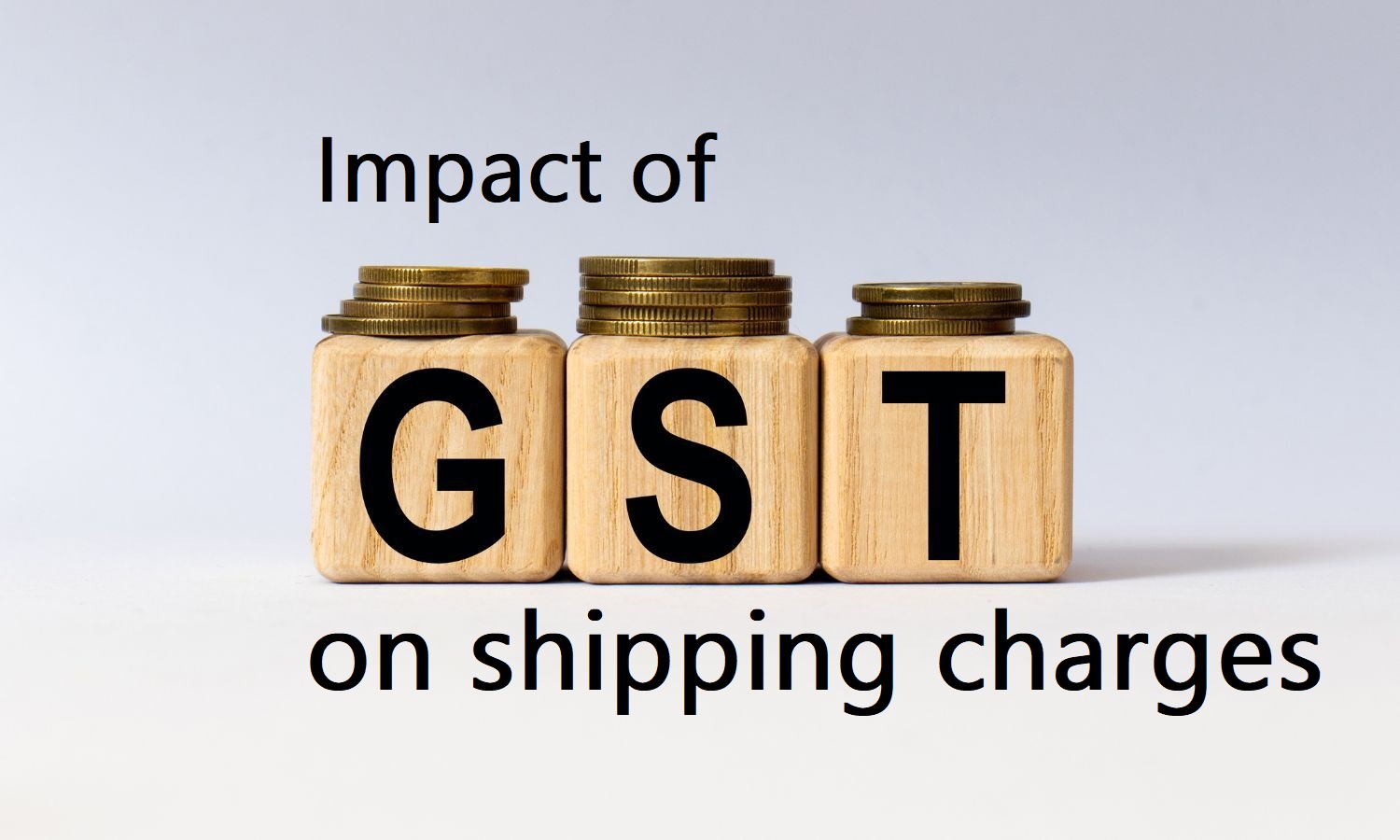The Goods and Services Tax (GST) is a comprehensive tax reform introduced in India in 2017, which replaced multiple indirect taxes such as excise duty, service tax, and value-added tax (VAT).
When any goods are shipped to the buyer; the shipping charges are applied. The seller adds this charge to the product bill. If the product is applicable for tax, then there will also be a tax applicable on shipping charges, depending on the rate of tax.
In the previous service tax system, when goods were loaded onto a ship as cargo, goods leaving the country were called exports, and goods entering the country were called imports. Shipping charges for these items are subject to service tax. Service tax is not applicable for both inbound and outbound shipments if the shipment is by air. Tax obligations for terminal usage fees, warehousing and goods handling are determined by the tax base of the main services.
Under the GST tax regime, dealers turn logistics and freight forwarding into services (including the movement of goods by sea, inland waterway, air, rail or road). GST must be charged on the total shipping cost. If freight is included, Goods and Services Tax on the freight shall be levied at the same rate as the rate charged upon delivery or consignment of the goods.

What is the delivery point of transportation?
According to the GST law, a place of transport is defined as:
- GST location of GST registered payee
- If no recipient is registered, the place of delivery is the place where the goods are handed over for carriage.
Once a beneficiary has been identified, the GST subject must be identified as her GTA or beneficiary. This depends on which category the beneficiary falls under her GST reverse charge provisions. GTA may allow the recipient to pay 5% tax with no pre-tax deduction, or allow him to pay 12% tax with full pre-tax deduction.
The impact of GST on shipping charges depends on various factors, such as the nature of the goods, the mode of transport, and the location of the supplier and the recipient.
Here are some possible impacts of GST on shipping charges:
- Increase in shipping charges: GST is applicable on transportation services, which means that shipping charges may increase due to the increased tax burden on the shipping companies. However, the actual impact on the shipping charges may vary depending on the type of transportation service and the distance covered.
- Change in the tax rate: The GST rate for transportation services may vary depending on the mode of transport, i.e., air, sea, or road transport. If there is a change in the tax rate for transportation services, it may impact the shipping charges.
- Reduction in logistics costs: GST has led to the simplification of the tax system by eliminating multiple taxes, which has reduced logistics costs for businesses. This may indirectly lead to a reduction in shipping charges as businesses may pass on the benefits of reduced logistics costs to their customers.
- Impact on import/export: GST has also impacted the import/export of goods as it has replaced the earlier tax system for exports and imports. The GST rates for imports and exports may vary depending on the type of goods, and this may impact the shipping charges.
Goods on which GST will not be applicable while transportation:
- Milk, salt, and edible grains (including flour, legumes, and rice)
- Agricultural products
- Organic fertilizer
- Support materials for victims of natural or man-made disaster
- A newspaper or magazine registered in the Newspaper Registry.
- Defense or military equipment
- Cargo for which a fee is charged for carriage as part of the shipment carried in one shipment of less than 1,500 rupees.
Conclusion: The impact of GST on shipping charges is complex and varies depending on multiple factors. However, it is expected that GST will lead to the simplification of the tax system, which may indirectly lead to a reduction in shipping charges.






